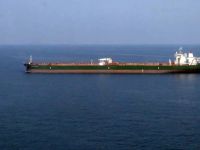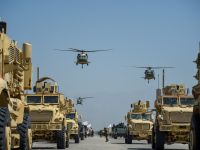Kuwait Financial Centre (Markaz) recently released its Monthly Market Research report. In this report, Markaz examines and analyses the performance of equity markets in the MENA region as well as the global equity markets.
Gulf markets ended their worst quarter in many years, as almost all indices in the region ended the month on a negative note. Qatar (-16 per cent) and UAE (Abu Dhabi -13 per cent, Dubai -23 per cent) indices were the biggest losers, as investors in both markets booked profits. This decline in June is Dubai market’s biggest monthly drop since November 2008. Oman index was the only positive index in the MENA region for the month of June, posting a return of 2.2 per cent. Both trade volume and trade value, in the MENA region, declined by 14 and 36 per cent, respectively.
S&P GCC recorded a decline of 7.4 per cent in the month of June, and closed at 128 points. Global Markets had mixed results in June, as S&P 500 and MSCI world grew by 1.9 and 1.6 per cent, respectively, while MSCI EM and FM indices declined by 0.7 and 0.1 per cent, respectively.
UAE and Qatar markets declined in June, as speculative bubbles deflated stocks. The problem was compounded by the cross-border tensions and a lull in activity during Ramadan, which dampened fresh buying. Despite the fall, fund managers claim business confidence remains strong, as the losses were not the result of negative economic news. Both UAE and Qatar had soared since June last year, with billions of dollars flowing into their markets, as MSCI announced upgrade to emerging market status. Dubai Market had moved up 67 per cent since the upgrade announcement in June 2013, while the Abu Dhabi and Qatar markets had moved up 28 and 24 per cent, respectively. After the upgrade last month, the markets were vulnerable to both profit-booking and speculation, which caused the fall in index values.
Dubai market had its first negative quarter in two years, as the index dropped 11 per cent. Abu Dhabi and Qatar also witnessed quarterly falls of seven and 1.6 per cent, respectively. Volumes and value traded declined for all three markets in June, with trade volume in Qatar dropping by 29 per cent, and trade value in Abu Dhabi falling by over 78 per cent.
Dubai also had to contend with Arabtec, one of the major developers in the region, posting huge decrease in share values, as the company’s new strategy to take on riskier and more complex projects pushed investors away. Additionally, company’s CEO, Hasan Ismaik, resigned abruptly in June, and rumors about employee lay-offs and loss of government backing, influenced investors to shun the company. Continuing management turmoil and lack of proper disclosures led to a freefall, as the company’s share value dropped from AED 6.70 at end of May to AED 2.61 at the end of June, a drop of 61 per cent.
Dubai’s real estate market may also be overheating, as the country’s central bank issued a warning on the soaring property prices. The average rental yields in Dubai and Abu Dhabi are, approximately, 70 and 130 basis points below historical averages, which could indicate growing imbalances. The central bank authorities continue to monitor the developments in the real estate markets, and the financial market exposure to real estate sector (at present 23 per cent of all bank loans), to prevent a repeat of the 2008 crisis.
Qatar's index, which hit an all-time closing high of 13,697 points at the end of May, on the first day after its MSCI upgrade, slid 16 percent to closed June at 11,489 points.
IPO: In June 2014, three companies were listed in the MENA region, including Abdul Mohsen Al Hokair Group (Saudi Arabia), Al Batinah Power Company (Oman) and Al Suwadi Power Company (Oman). Each of the three were 10x oversubscribed. Abdul Mohsen Al Hokair Group offered 16.5 million shares, representing a 30 per cent stake, at an issue price of SAR 50. Al Batinah Power Company offered 236 million shares, representing a stake of 35 per cent, at an issue price of OMR 0.155. Al Suwadi Power Company has offered over 250 million shares, representing a stake of 35 per cent, at an issue price of OMR 0.153.
IPO for Al Hammadi Company for Development and Investment (Saudi Arabia) closed subscription in mid-June. The company wants to raise SAR 630 million, representing a 30 per cent stake, by issuing 22.5 million shares. The shares were oversubscribed by close to 2x.








